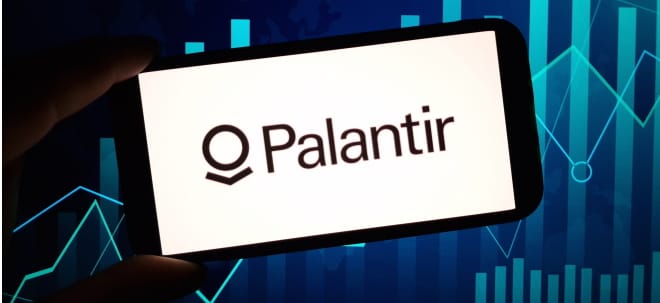Mifepristone Shown to Reduce A1C in Patients with Difficult-to-Control Type 2 Diabetes and Hypercortisolism
Study Results Signal Paradigm Shift in Diabetes Care for Patients with Difficult-to-Control Type 2 Diabetes
CHICAGO, June 23, 2025 /PRNewswire/ -- New findings from the CATALYST study show that the use of mifepristone resulted in improved blood glucose (blood sugar) control and weight reduction in patients with difficult-to-control type 2 diabetes and hypercortisolism. The results of the largest prospective trial of its kind were presented as a late-breaking symposium at the 85th Scientific Sessions of the American Diabetes Association® (ADA) in Chicago, and simultaneously published in Diabetes Care®.
Among patients with type 2 diabetes, more than half do not achieve blood glucose targets as assessed by the hemoglobin A1C test, despite substantial lifestyle efforts and multiple medications. The CATALYST study explored whether hypercortisolism is a contributing factor in people with difficulty achieving A1C targets despite multiple medications. Hypercortisolism is a condition where the body produces too much cortisol, which can raise blood glucose.
Part 1 of the CATALYST study, presented at the 84th Scientific Sessions, revealed that hypercortisolism may be a significant contributing factor in one in four patients with difficult-to-control diabetes. Patients with hypercortisolism presenting as uncontrolled type 2 diabetes physically appear the same as those without hypercortisolism, but they do seem to require more medications and have more complications.
Part 2 of the CATALYST study was a randomized, prospective, placebo-controlled, double-blind multi-center trial designed to assess the safety and efficacy of mifepristone treatment in patients with hypercortisolism who have difficult-to-control type 2 diabetes. 136 participants with hypercortisolism received either mifepristone or placebo over a 24-week period to assess the impact on glycemic control and other metabolic parameters. Mifepristone is a medication that reduces the effects of cortisol and is FDA approved for the treatment of elevated blood glucose in patients with hypercortisolism and prediabetes or type 2 diabetes.
Mifepristone reduced A1C by 1.5% as compared to a reduction of 0.2% with placebo. The A1C reductions occurred even as many patients decreased or stopped other diabetes medications, including insulin. In addition, treatment of hypercortisolism with mifepristone was associated with nearly 10 pounds of weight loss and a reduction in waist circumference of more than two inches.
"These findings demonstrate a potentially promising treatment solution for patients with difficult-to-treat type 2 diabetes and hypercortisolism, a patient population frustrated with poor results of their diabetes care," said John Buse, MD, PhD, from the University of North Carolina School of Medicine and one of the authors of the study. "By treating the root cause—excess cortisol—we saw meaningful improvements in both blood glucose and weight which could be game changing when it comes to managing type 2 diabetes."
The authors note that results may translate to expanded screening for hypercortisolism in patients with type 2 diabetes. Future research is needed to understand whether patients with less advanced type 2 diabetes may experience similar benefits, if other cortisol-directed therapies offer similar results, and whether long-term treatment will provide benefits in preventing complications associated with inadequately controlled type 2 diabetes.
Research presentation details:
Dr. Buse will present the findings at the following symposium along with Drs. Ralph DeFronzo, Vanita Aroda, and Vivian Fonseca:
- Symposium: Treatment of Hypercortisolism in People with Difficult-to-Control Type 2 Diabetes—Final Results of the CATALYST Trial
- Presented on Monday, June 23 at 3:15 p.m. CT
About the ADA's Scientific Sessions
The ADA's 85th Scientific Sessions, the world's largest scientific meeting focused on diabetes research, prevention, and care, will be held in Chicago, IL on June 20-23. Thousands of leading physicians, scientists, and health care professionals from around the world are expected to convene both in person and virtually to unveil cutting-edge research, treatment recommendations, and advances toward a cure for diabetes. Attendees will receive exclusive access to thousands of original research presentations and take part in provocative and engaging exchanges with leading diabetes experts. Join the Scientific Sessions conversation on social media using #ADASciSessions.
About the American Diabetes Association
The American Diabetes Association (ADA) is the nation's leading voluntary health organization fighting to end diabetes and helping people thrive. This year, the ADA celebrates 85 years of driving discovery and research to prevent, manage, treat, and ultimately cure—and we're not stopping. There are 136 million Americans living with diabetes or prediabetes. Through advocacy, program development, and education, we're fighting for them all. To learn more or to get involved, visit us at diabetes.org or call 1-800-DIABETES (800-342-2383). Join us in the fight on Facebook (American Diabetes Association), Spanish Facebook (Asociación Americana de la Diabetes), LinkedIn (American Diabetes Association), and Instagram (@AmDiabetesAssn). To learn more about how we are advocating for everyone affected by diabetes, visit us on X (@AmDiabetesAssn).
Media Contact: MCarmody@diabetes.org
![]() View original content to download multimedia:https://www.prnewswire.com/news-releases/mifepristone-shown-to-reduce-a1c-in-patients-with-difficult-to-control-type-2-diabetes-and-hypercortisolism-302486230.html
View original content to download multimedia:https://www.prnewswire.com/news-releases/mifepristone-shown-to-reduce-a1c-in-patients-with-difficult-to-control-type-2-diabetes-and-hypercortisolism-302486230.html
SOURCE American Diabetes Association


